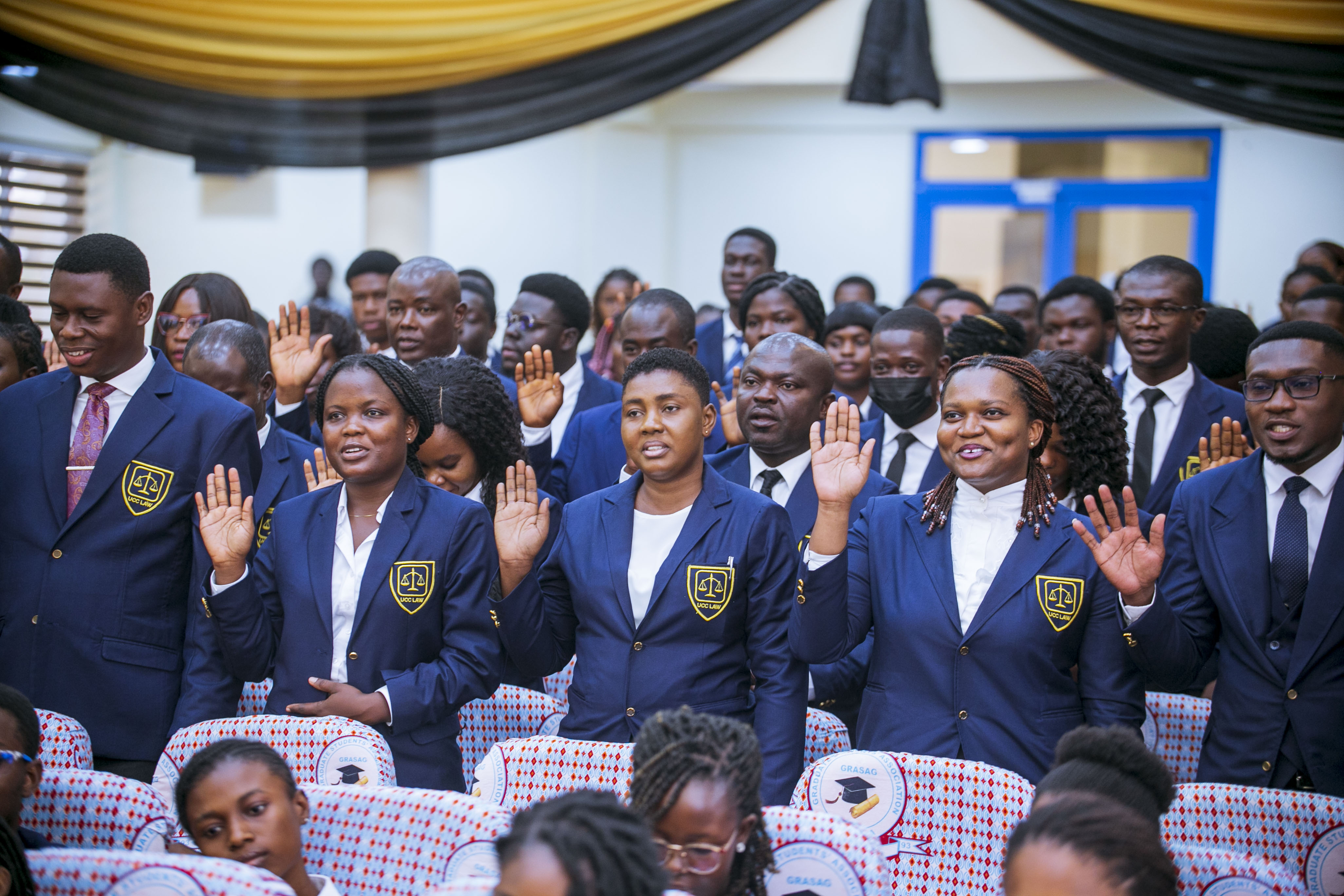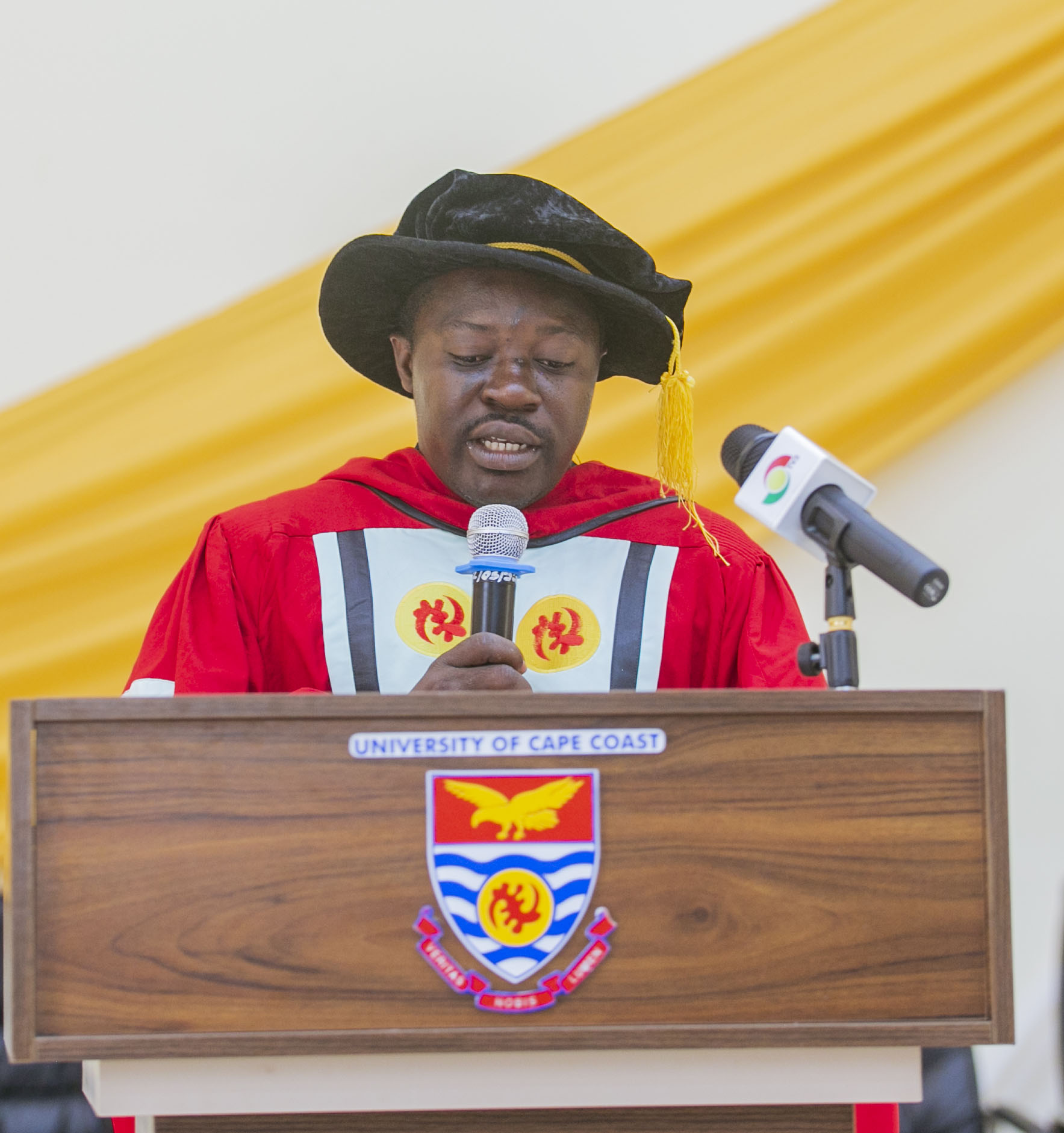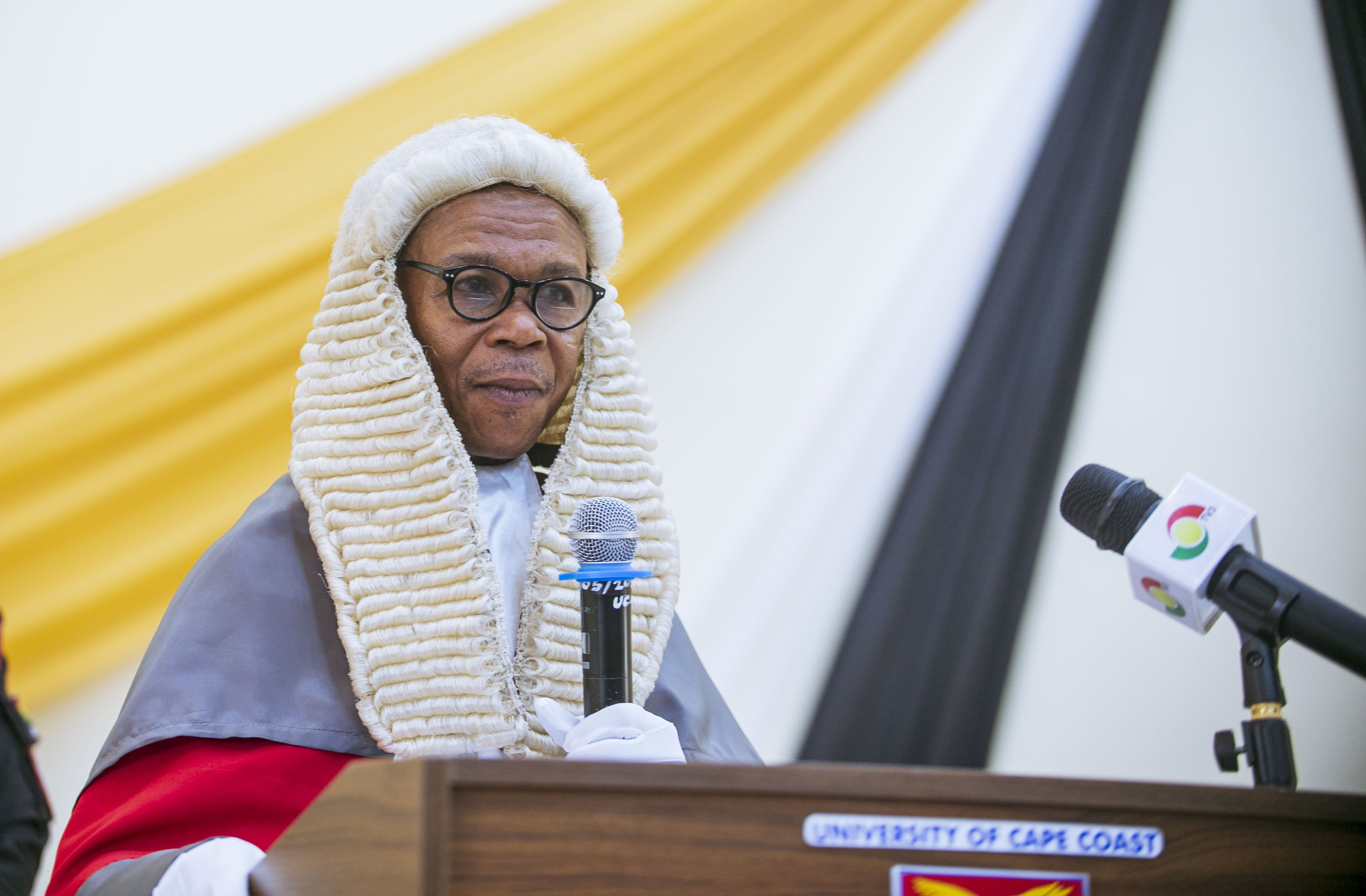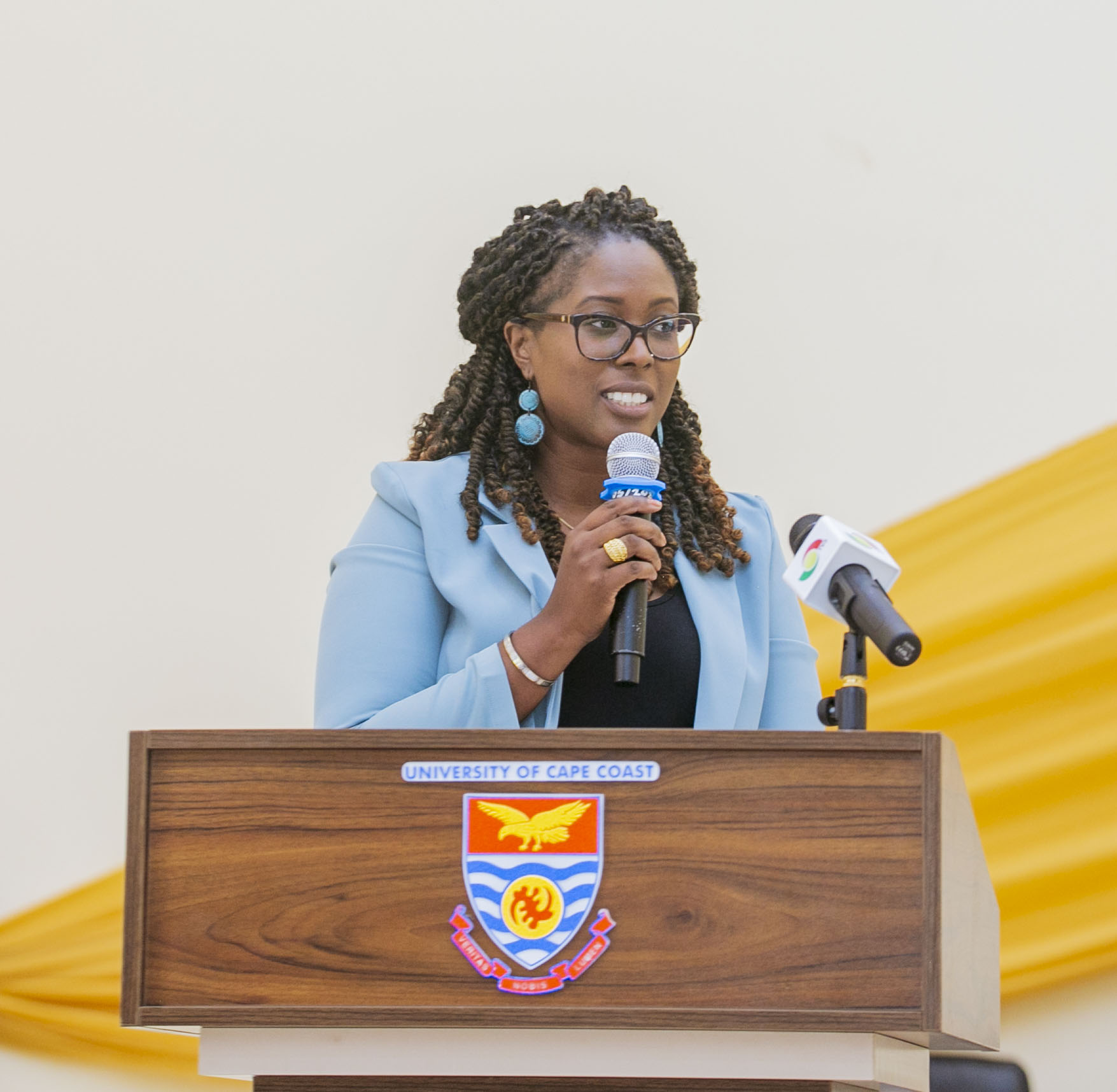The Faculty of Law of the University of Cape Coast (UCC) has organised a roll-call ceremony to admit 101 fresh students to pursue a Bachelor of Laws (LLB) degree at the University.
Held during the first semester of every academic year, the roll-call ceremony was aimed at inducting newly admitted first-year students into the faculty to pursue their three-year LLB programme.
The Vice-Dean of the Faculty, Dr. Elijah Tukwariba Yin, who gave the keynote address congratulated the students on their admission and recommended they take their studies seriously because the programme was challenging.
“My dear freshers, the LLB programme is difficult. It requires more reading and critical thinking. When you score 2 out of 20, don’t be frightened, it may be normal in the UCC faculty of Law. Just work hard. When you fail a law course, don’t go gaga”, he said.
The Vice-Dean of the Faculty, Dr. Elijah Tukwariba Yin, addressing the students
He urged the students to take advantage of Artificial Intelligence (AI) in the discharge of their legal education at the University.
Dr. Yin maintained: “AI holds enormous potential to augment the efficiency and effectiveness of legal education and our legal system. We have to admit that AI has become part of our society.”
He, however, advised the students to tread cautiously as regards the usage of AI.
“You might face consequences for turning in AI-generated assignments. You can also be embarrassed, as there is evidence to suggest that AI tools can contain systematic bias in their data, leading to skewed results. AI tools can also provide you with the wrong information”, he added.
Dr. Yin said the legal landscape continues to evolve, and actors of the legal system need to adapt to changes to remain relevant and effective in their practice.
He extolled the Faculty for chalking up numerous successes, including winning the Law Challenge three consecutive times.
“Worthy of note is that the Faculty did not only compete with other young law faculties but also with faculties that are much older and well-resourced,” he continued.
Dr. Yin explained that a 21st-century faculty of law would have to adapt new strategies to meet the skill needs and expectations of Ghanaians and other Africans interested in pursuing legal education.
According to him, a 21st-century faculty of law “requires critical thinking, creativity, collaboration, communication, information literacy, technology literacy, leadership, initiative, productivity, and social skills.”
He stressed that a 21st-century faculty of law would need to sustain and significantly improve its research architecture. That, according to him, would require special interest and a dedicated grant for research activities, insisting that the surest ways the Faculty could catch up with other sister faculties.
He maintained that a 21st-century faculty of law should take advantage of social media platforms to highlight its achievements to the world.
For his part, the Supervising High Court Judge, Central Region, His Lordship Justice Kofi Akrowiah, encouraged the students to be guided by the values of integrity, ethics and honesty.
Supervising High Court Judge, Central Region, His Lordship Justice Kofi Akrowiah
He explained that the legal profession existed to promote public welfare and provide justice to all manner of people. He added it was, therefore, important for student lawyers to exhibit traits, which would increase the public’s confidence and trust in the profession.
His Lordship Justice Akrowiah advised students not to allow material things to be their motivation.
“If money is why you want to become a lawyer, then you are in the wrong profession. But if you want to become rich at all cost then you might end up in jail”, he said.
He further implored students not to engage in needless demonstrations whilst on campus and respect the rules of the University.
The Dean of the Faculty, Mrs. Julia Selman-Ayetey, in her welcome address, recounted the formative years of the Faculty which began in 2013. She indicated that the Faculty had grown in leaps and bounds as a result of the number of students it had admitted over the years.
Dean of the Faculty, Mrs. Julia Selman-Ayetey
She noted the Faculty would mark its 11th anniversary in August 2024.
Mrs. Selman-Ayetey paid glowing tributes to the founding Dean of the Faculty, Prof. Philip Ebow Bondzi-Simpson, and other faculty members for the meaningful role they played in the establishment of the Faculty.
The event was chaired by Prof. Dora Francisca Edu-Buandoh, a former Pro Vice-Chancellor of UCC.
Source: Documentation and Information Section-UCC




